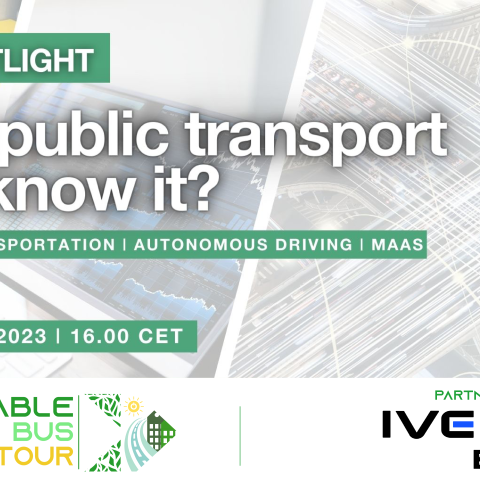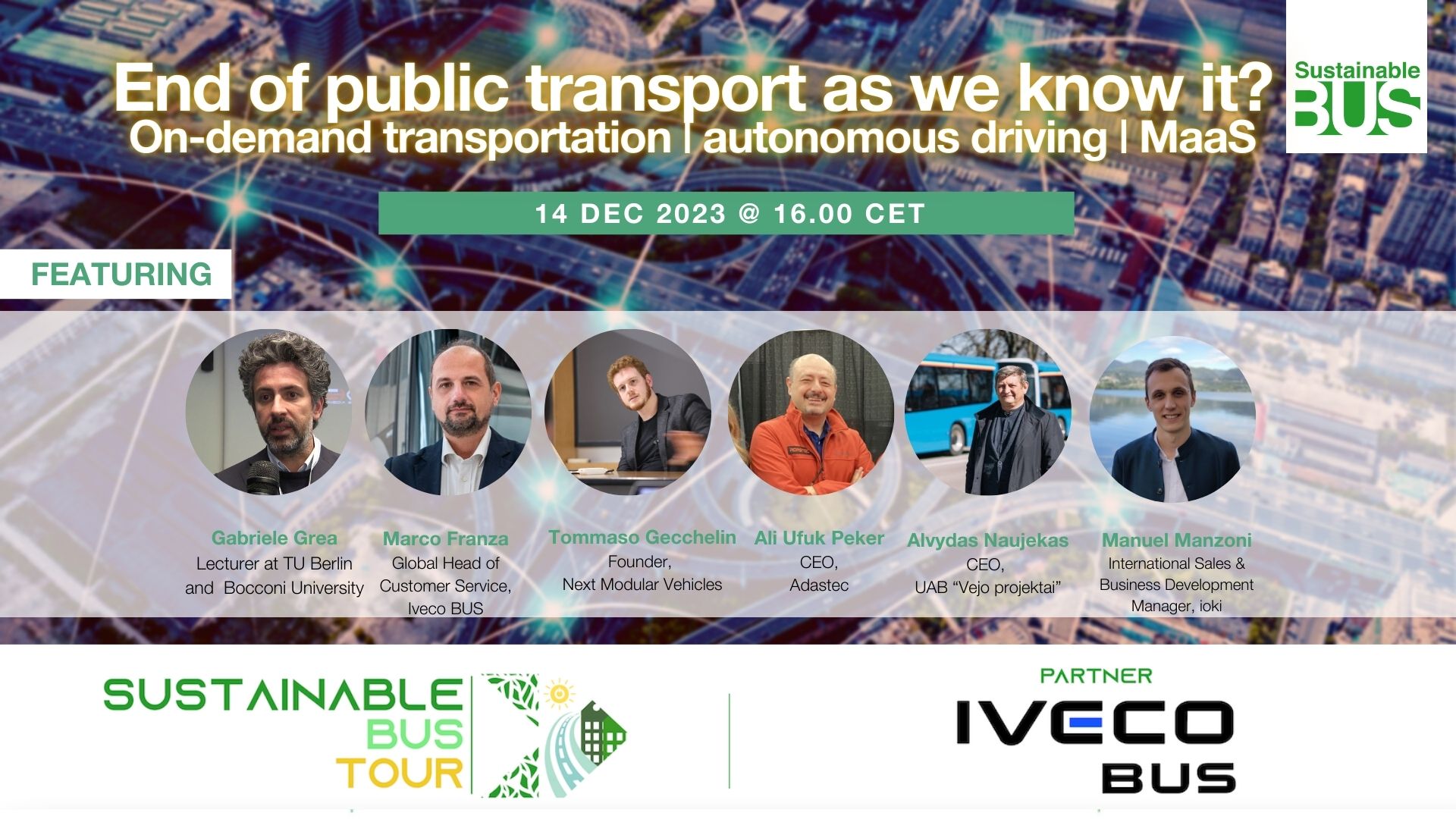End of public transport as we know it? Tune in on 14th December for a videoreporting dealing with on-demand transport and autonomous driving
The landscape of public transport is on the brink of transformation, as technology opens doors to unprecedented flexibility. In our upcoming videoreporting belonging to the Sustainable Bus Tour 2023 initiative, we delve into the intriguing topic: “End of public transport as we know it? On-demand transportation | autonomous driving | MaaS“. It’ll be online on […]

The landscape of public transport is on the brink of transformation, as technology opens doors to unprecedented flexibility. In our upcoming videoreporting belonging to the Sustainable Bus Tour 2023 initiative, we delve into the intriguing topic: “End of public transport as we know it? On-demand transportation | autonomous driving | MaaS“.
It’ll be online on Thursday 14th December at 4 p.m. CET.
The aftermath of the Covid pandemic has left public transit systems grappling with lower revenues from ticketing, prompting cities to seek innovative solutions. But it’s the pace of technology itself which is pushing for innovation on the side of the offer of mobility. On-demand transportation is gaining prominence, attracting new players to the market and offering a potential remedy to the challenges faced by traditional transit. Simultaneously, autonomous driving technology is evolving, with significant investments from industry players and the launch of groundbreaking products – although still at a pilot phase.

Future trends in mobility, a few perspectives
However, amidst technological evolution, questions loom about the legislative framework governing these advancements. As we explore the economic landscape, McKinsey suggests that the cost per mile of a robo-taxi trip could be only 20 percent higher than that of a private non-autonomous car in certain contexts. The implications for public transport operators will hinge on the strategies adopted by municipalities and transit agencies.
Our videoreporting will feature insights from key industry players, providing some glimpse of the future trends in mobility.

Iveco Bus, Adastec, Next, ioki, Dancer Bus speaking
Gabriele Grea, researcher and lecturer at TU Berlin and Bocconi University, will contribute with an introductive insight about how the mobility landscape in Europe is evolving, which are the financing in place, emerging trends. Marco Franza, Global Head of Customer Service at Iveco Bus, will touch upon on-demand transportation, shedding light on their recent partnership with Via and the role a manufacturer can play within such trends (and which impact are foreseeable on vehicles’ design and development). Tommaso Gecchelin, Founder of the italian startup Next Modular Vehicles, will provide a glimpse into the innovative solutions reshaping the public transport sector and in particular will explore the potential of enhancing public transport flexibility through modularity.
Ali Ufuk Peker, the CEO of Adastec, software company providing technology for automated driving to bus manufacturers Karsan and Vicinity, will offer his expertise in autonomous driving technology. Alvydas Naujekas, CEO of UAB “Vejo Projektai,” will contribute insights from his experience in Dancer Bus, a Lithuanian newcomer in bus manufacturing, with focus on lightweight and connectivity-focused projects. Last but not least, Manuel Manzoni, International Sales & Business Development Manager at ioki, will focus on ioki’s strategies in the field of on-demand transportation.







